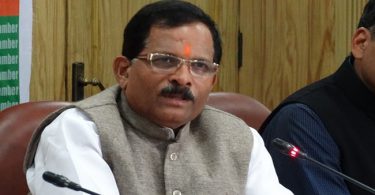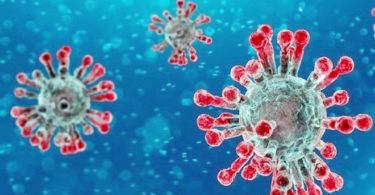 The health ministry’s proposal of a “bridge course” for doctors of homeopathy and Indian medicine is being rejected by homeopaths and allopaths.
The health ministry’s proposal of a “bridge course” for doctors of homeopathy and Indian medicine is being rejected by homeopaths and allopaths.
New Delhi: The Union health ministry has landed itself in an awkward position with the government’s own Central Council of Homoeopathy (CCH) opposing their recent proposal to offer a ‘bridge course’ to homeopaths to practice limited allopathy. While the Central Council of Indian Medicine (CCIM) supports the proposal, it has a different expectation from the government about the bridge course. The allopathic lobby (represented by the Indian Medical Association or IMA) has already vociferously protested the proposal, and even organised an all-India strike.
According to the National Medical Commission Bill, 2017, the bridge course can become a reality only following joint meetings and voted decisions of the National Medical Commission, the CCH and the CCIM.
Senior officials at these bodies have, however, expressed to the The Wire their reservation and outright opposition to the plan.
In December, the government tabled a much-awaited new Bill in parliament to overhaul medical education. Titled the National Medical Commission Bill, 2017, the Bill proposes a new medical commission which will replace the existing Medical Council of India (MCI).
India has a serious demand-supply problem: The World Health Organization prescribes one doctor for every 1,000 people but India’s ratio is 1:1,668. India has about seven lakh allopathic doctors, and about seven lakh AYUSH doctors. The country also has lakhs of nurse practitioners and chemists. Although AYUSH doctors, nurse practitioners and pharmacists are not legally allowed to prescribe any allopathic medicines, in reality, they fill in for the shortage of doctors and do prescribe these medicines.
The bridge course could bring all this over ground and address the shortage of doctors. It could also result in a legal backdoor to quackery. The idea behind the course is to let AYUSH (Ayurveda, yoga, Unani and Siddha) practitioners to do a short programme which would allow them to practice some limited amount of allopathy. At present, there is already substantial common ground in the syllabi of allopathy and AYUSH in India.
Government’s homeopathy council opposes the bridge course
“We are against this proposal,” said Ramjee Singh, president of the homeopathic council. “We have our own system and we don’t let our doctors practice other medicines and other types of doctors should not be allowed to practice our stream,” he says.
“We have consistently and completely opposed any crossover between homeopathy and allopathy. Our stand now is not new. But on this specific issue of the bridge course, we reject the idea,” said R.K. Manchanda, director general of CCRH.
Also read: Explainer: The Government Bill That Wants to Integrate Homeopathy and Modern Medicine
Yesterday, the Homeopathic Medical Association of India wrote a letter to the parliamentary standing committee on health, protesting the bridge course. In fact, they want the entire Clause 49, which prescribes this course, to be deleted. “The basic principles of treatment of homeopathy are exactly opposite to that of so-called modern medicine,” is the first point raised in their letter. The government’s move will “open a new legal door to produce qualified medical quacks in name of prompting medical pluralism,” the letter states, adding that “At an international level this bill is going to be a matter of ridicule”. Their letter has also been sent to the health minister.
“Just because there is a shortage of doctors, that is not a reason for them to have a bridge course and for us to go to rural areas. Government should build their own infrastructure if there is a shortage. I think the government is just frightening us,” said Mathews Jo from the Indian Homeopathic Medical Association.
Somewhat support from CCIM
While the opposition to homeopaths seems to largely come from the idea of maintaining purity, Vanitha Muralikumar, president of the CCIM, says “There is no such thing as purity or impurity. All streams have their strengths and limitations. In Ayurveda, our gap is that we are not being allowed to access modern advances. China has allowed integration of medicine. Here, we are being suppressed.”
Given this background, she says the CCIM is in favour of the bridge course.
However, they are in favour of it because their understanding is that it will fill up the “gaps” – which Muralikumar referred to – in terms of accessing “modern advances.”
“The gaps for us in Ayurveda is that we are not allowed to use anesthesia, radiology, ultrasound, MRI and so on. If we are allowed to do this, we will remain an ancient medicine but with modern advances. This is what CCIM wants and we think the bridge course can help with this,” says Muralikumar.
This, however, is not the health ministry’s idea behind Clause 49.
Allopathic lobby has already lodged protest
The IMA had organised a one-day, all-India strike when the Bill was tabled in the parliament. K.K. Aggarwal, who was president of IMA until recently, emailed several IMA doctors explaining his issues with the Bill.
The Bill asks for those who have completed the bridge course to be tabulated separately in the Indian medical registry. Aggarwal points out that this could mean that these doctors would have registrations in two councils, which is not permitted. “In a way, a classical privileged group would stand created by virtue of the proposed Bill,” he wrote.
Health ministry’s expectations from clause 49
“These doctors in the allopathic lobbies themselves don’t want to go to rural areas. They strongly opposed the government’s plan to have a BSc Community Medicine course. Now they won’t allow anyone else to go to expand healthcare either? They just want to monopolise everything in urban private hospitals,” said a health ministry official.
“In modern medicine degrees, there are far more private colleges than government ones, and students here take heavy loans. Then they refuse to go to rural areas. In AYUSH, there are far more government medical colleges where the fees is cheaper. They will not be burdened by heavy loans and may be keen on expanding their opportunities through the bridge course,” added the official.
However, there is some disagreement regarding whether these bridge course graduates will be targeted towards under-served areas or not. Another government official involved in the drafting of the Bill said, “Why only for rural areas? Those who do the bridge course should be allowed to practice in urban areas too.”




